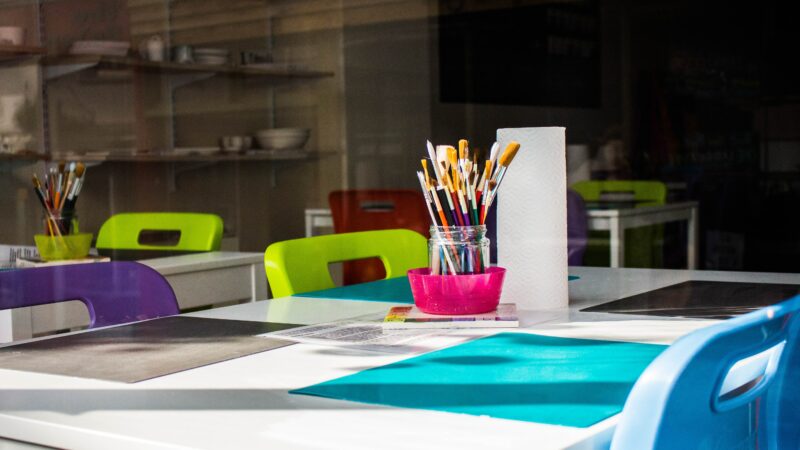
Teaching, the saying goes, is one-fourth preparation and three-fourths pure theatre. Over the last week, the government has given us little space for preparation – but there has been plenty of theatre. In the space of just seven days, we’ve gone from relative normality to full lockdown.
At the start of last week, I sat with my colleagues in the Year 3 team and we discussed the days ahead. Wednesday looked particularly exciting: a trip to the theatre followed by our weekly swimming session. We questioned whether these would be possible, but the Department for Education had told us to go ahead. The only change to the usual routine was the frequency with which we dispensed hand sanitiser to the children.
On Tuesday, all trips were cancelled. The theatre and leisure centre had closed in any case. Pupil numbers were beginning to drop, too: the year group’s cohort of 60 was down to 40. The following day, they dropped further still, and teachers were told to prepare resources for the children to take home in the event of closure. That evening, the government finally announced that we would close on Monday.
The guidance on school closures was far from clear. We had assumed that the children of key workers would still come in, but when the announcement came two other groups were included: children with an EHCP (Education, Health and Care Plan) and those with a social worker. By the day of the announcement, only eight were in attendance, though when my colleague and I totted up the numbers, out of 30 children in the class, 20 fell into one of these categories and would be eligible to attend the following week. In other words, there could be more children in school when it closed than when it was open. How do you plan for that? Then we discovered that the school would even stay open over the two week Easter break – a ‘school closure’ in name only.
When would we be in school and when would we be at home? What would happen at school and what would be expected of us at home? What will happen to children who rely on free school meals? And for the teaching assistants employed through an agency there was an even more pressing question: will I keep being paid?
Schools across the country have each found different answers. Some schools closed with a guarantee of full pay and a skeleton provision comprising only those who volunteered. Others were not so lucky. I know of one school where the staff has been split in two, and the teams alternate – one day teaching the children on one of the school’s two sites, the next day spent cleaning the premises on the other. Why so much variety? In part, this is headteacher discretion, but a major factor is union strength.
In the National Education Union, we sometimes talk about how the ‘frontier of control’ has moved. Simply put, it used to be the government or local authority’s decisions that most affect our lives as workers, whereas now it is the individual school’s. A month ago, this seemed like a theoretical point but now it is very real. In just the last week, my primary school has had two emergency union meetings. At each one, we agreed demands to be put to the Head. When one demand – full pay for self-isolating agency workers – was not agreed, teachers and teaching assistants all put their name to a letter reiterating the demand. The school agreed, for the time being at least.
On Monday, the school opened for the first time during its ‘closure’. Over the weekend, the government further clarified which children should attend. The number of eligible children was slightly less than we previously thought – and, more importantly, even these parents were told to treat us as a last resort. Of the 450 children on roll, only ten came in. A rota for the coming weeks was created, and most staff went home.
Teachers have rediscovered the collective power they have in their individual workplace. As the crisis continues, we will need to apply the same lessons to the national picture. If schools are to reopen again soon, the government must guarantee the safety of both children and staff. The NEU is demanding Covid-19 testing for all education workers. The government must do the preparation before we can get back to providing the theatre.




More from LabourList
‘Hope starts young: Why Labour must tell the story of a better tomorrow’
LGBT+ Labour suspends AGM amid fears of legal action over trans candidates running for women’s roles
‘Hyperlocal messaging can help Labour win elections: Here’s how’